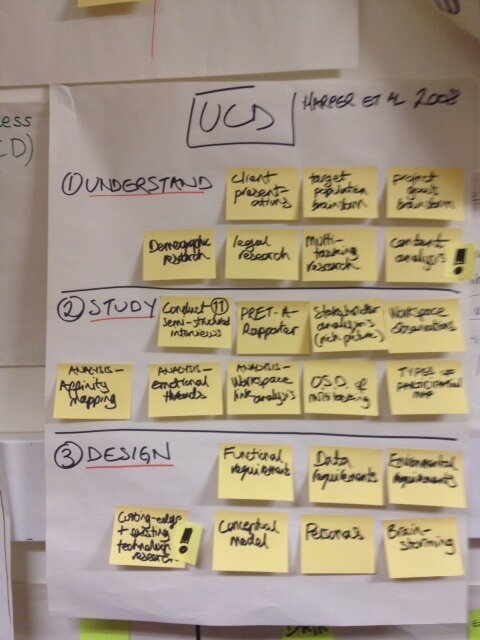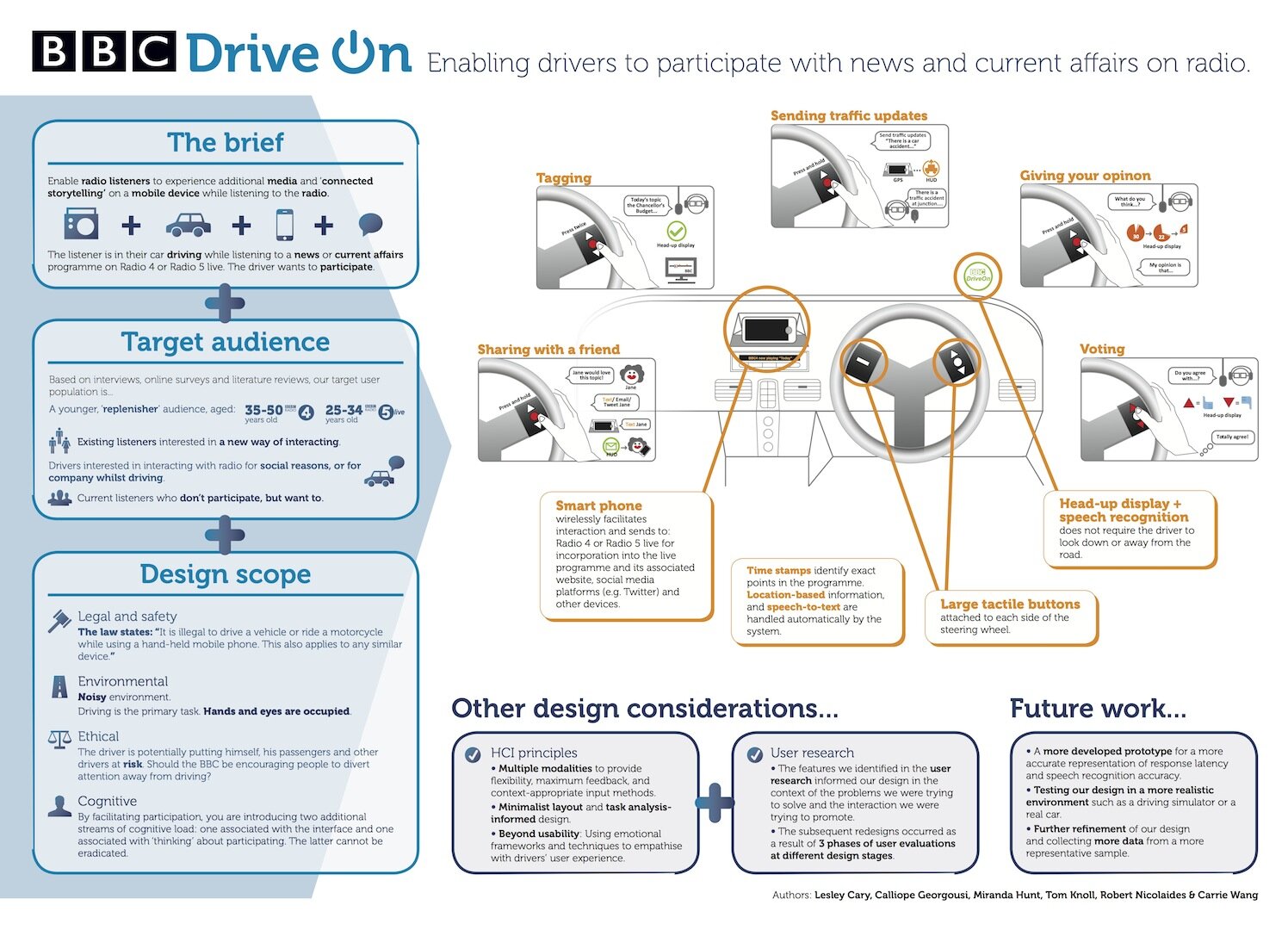MSc Seminar Project- BBC Drive On
This is a seminar project on Design Experience, whilst studying MSc in HCI at UCL. BBC requested our team to enable their Radio 4 and 5 audience into a more interactive driving experience. The project received an unprecedented 78% mark for the course standards and BBC’s later interest in our research.
Understand.
For this project, I worked as a part of a team of six people for two weeks. We shared tasks and swapped leadership each day. We started with a ‘desk research’ looking for BBC radio four and five demographics, future technologies, legal issues and multitasking while driving. We then conducted semi-structured interviews and made more than 10 of them.
I conducted several “in the wild” interviews coupled with one more classmate. Other members conducted phone interviews and questionnaires. We gathered observations in an affinity diagram, a bottom-up approach allowing the patterns to emerge as common themes. This practice gave us a glimpse of how people “think and feel" opening the field of ‘designing for pleasure’ (Jordan, 2001). It also informed the user requirements and a spatial in-car link analysis touching on ergonomics.
Create.
I drafted two personas, developed a scenario and the storyboard. I then designed one persona in Illustrator based on our users background, motivations, age and social groups. This practice gave the team a clearer understanding of our target user group in order to begin brainstorming and prioritising concepts. Like this, we identified a set of five features that were useful for BBC radio listeners to interact with while they drive.
Giving an opinion
Sharing with friends
Tagging for later
Sending in traffic updates
I then facilitated a parallel prototyping session, to design the concept later to become the prototypes. Together we iterated down to one product we could quickly prototype in low fidelity, to begin testing. The prototype was developed from rough paper sketching to carton and tested using the “wizard of oz” technique.
Evaluation.
Evaluated prototype using the “4 pleasures” framework and body storming sessions to empathise with users motivations prior to user testing phase. This lead me to develop a new framework of a “User needs Hierarchy” to surface and prioritise our findings as usable and affective needs.
Deliver.
We pitched our work in a poster and I demonstrated the prototype and the new evaluating framework to the stakeholders and tutors. Outcome: The project received an overall 78% mark and BBC later interest in our research.
This intense team project allowed me help my team whilst developing my user research skills. Throughout this seminar hands on practice, I had the chance to explore new techniques to facilitate the group and to demonstrate the product. One of my challenges was communicating my point across as a designer.




